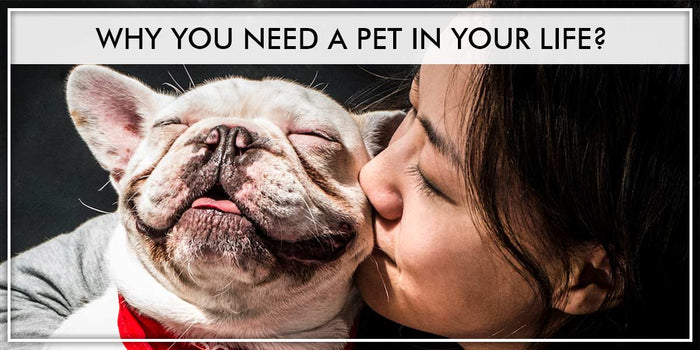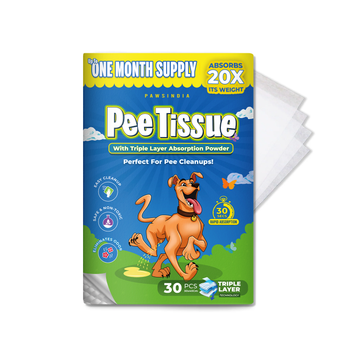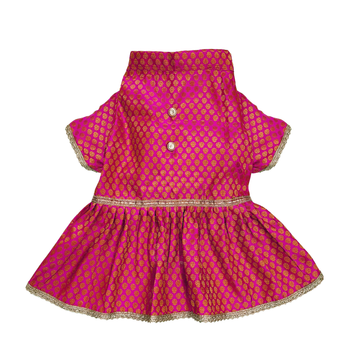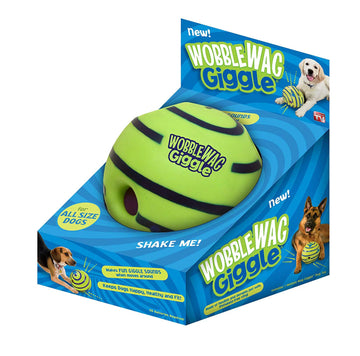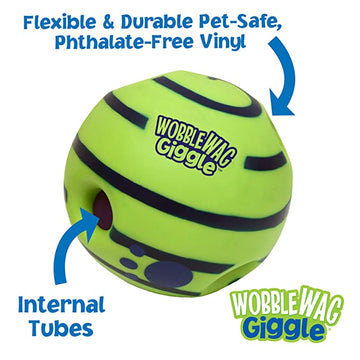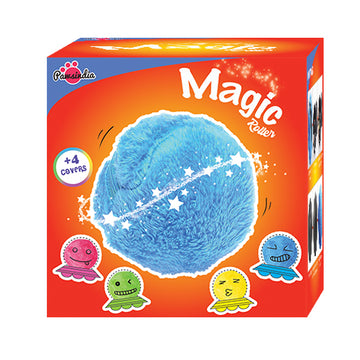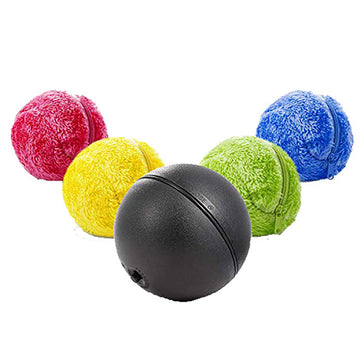The Ultimate Guide to Raising a Dog in 2021 - Everything you need to know about how to raise a puppy
Puppies are beyond adorable, little bundles of joy who are intensely curious and aware about their surroundings. With their little paws, puppy eyes, and their adorable ways. But, let’s not kid ourselves, they require the care and affection of a human toddler, even more. And, if you are someone who has never gone through the process of raising a dog before, this task can seem quite daunting. That being said, there are a lot of benefits of having a dog that will fill your life with happiness.
With a puppy comes a lot of patience, responsibility, and care. If you are someone who is looking to take on this big responsibility, it is a given that you educate yourself and make this process a lot easier. Things like: average cost of raising a dog, basics of raising a dog, how easy it is to raise a puppy, how to raise a puppy while working from home, how to raise a puppy when you work are bound to come to your mind.
This blog is the ultimate guide that you can always come back to know anything about raising a dog who is healthy, and well-adjusted. It also has some tips for raising a puppy.
Also, at PawsIndia we believe in adoption rather than buying. This gives a home to a homeless creature and what you get in return is the endless love and satisfaction of making life better. So, join us in our mission: #adoptdontshop. The process of raising a puppy starts way before you get the dog home. We previously created an entire checklist of things that you need before getting a dog, feel free to check it out: STEP GUIDE TO TAKE CARE OF A PUPPY.

Food and Nutrition:
A tentative feeding timeline:
- 6-12 weeks: This is the time when you will start feeding your puppy some puppy food. This is the fast-growing age and requires a lot of nutrition to support and complement the growth. This time, you will be feeding your puppy 4 times a day.
- 3-6 months: This period you can reduce the number of meal times to 3 times a day.
- 6-12 months: This will be the time you must switch to adult dog food and further reduce the meal times, to 2 times a day.

1.Feeding
1.Selecting the right food for your dog:
It is always advisable to consult your vet before starting your puppy’s meal plan for dietary recommendations depending on your dog’s breed, their age, their allergies, etc.
In most cases, there are multiple options out there in various forms like canned food, semi-solid, or even dry food. If you are someone who has a little extra time on their hand, you could always plan for their week and give them home-cooked dog food.
Store-bought food works just fine, and you can get options across various prices and brands.

2.How much to feed:
Once you’ve picked a dog food, check out the label for guidelines on the amount needed for your dog’s weight. Keep in mind these are guidelines only, but it’s a good place to start.
Once you are set on the food, you must check the guidelines on the packaging and if you make a custom dinner option, you should consult your vet for the proportion of the meals. (e.g. 2 cups would be 1 cup per meal if you’re feeding 2 times a day).
What is important after this is monitoring your dog’s weight and then scaling the food to meet their growth requirement. Regular vet checks will help give feedback on how they’re doing.

2.Vet and grooming
It is a good practice to visit the same vet every time. So, the vet knows your pet’s health and medical history in and out. It also makes your pet’s life easy as they know the vert and do not have to get acquainted with new surroundings every time.
Here are a few things that need to taken care of regularly as good hygiene practices:

1.Ticks and Fleas:
Dogs are extremely prone ticks and fleas and it is extremely important to regularly get your pet checked for them. Ticks and fleas are a dog’s worst enemy.

2.Grooming:
Grooming requirements are different for different breeds. Haircuts, baths, shedding, getting nails done, blow-drying, are just a few of the things that need to do on an average of every 8-10 weeks.

3.Oral Hygiene:
Oral hygiene is more often than not neglected. It is very important to keep your dog’s teeth clean. Vets recommend pet parents to use various toys out there that can help keep your pet’s teeth clean. PawsIndia has one such brilliant toy- Dental Toy.

Training and Socialization:
How you train your dog in the first several months can make all the difference in your dog’s demeanour and behaviour for the rest of their life. The same goes for puppy socialization.
Training given to a puppy in the first few months shapes a dog’s life, their behaviours, their attitude. This is the time when you can train them to be the best-mannered dogs out there. This is also the time your puppy needs to be introduced to people, dogs, and other animals.
This might sound a little intimidating, but it’s not. Follow these few steps and you will be started on your journey.

1. Potty training for a puppy
No one likes picking dog poop all around the house and having their houses smelling like urine at all times. Which is why potty training is essential, and it needs to be done at a certain age, just like humans.
The best age for potty training a puppy is when the puppy is up and about 12-16 weeks old. This is the time when they start getting some control of their bladder and bowel movements and start learning how to control it.
Even if you decide to an older puppy who is not trained, don’t worry, you can still train them.
Here are some of the best potty training for a puppy tips:
- During the initial stages, confine your puppy to small spaces. Imagine a puppy who is not trained. What a disaster!
- Take your dog out frequently for potty. Now, tiny puppy= tiny bladder. Take them for potty out often when they are small.
- Keep an eye out for signs. Signs like circling, sniffing, whining and barking by the door, they mean that your dog wants to relieve itself.
- Go to the same spot every time. Going to the same place would instil a habit and the scent will let your puppy know it’s time to get down to business.
- Reward when they are successful in training! I know it might sound weird, but praise them or even give them a treat every time they go potty outside, this will act as positive reinforcement.
There is no average time for potty training a puppy. With tiny steps at a time, there will be a time when your dog successfully does his business outside. It can be a long and tiring process, you need to be patient and never punish!

2.Leash Training
Going on walks is one of the best exercises for you as well as your puppy. This is one of the most important ways in which your dog spends its energy. Which is why it is important to get your buddy used to the ways of the leash. After all, no one wants walks where you have to drag your dog or with your dog tugging at the leash. A new leash training is equally important as well.
P.S. If you are someone who has 2 dogs and are looking to leash train them we have a blog on just that. Read: WALKING YOUR DOGS HAVE NEVER BEEN EASIER!
The right age to start leash training a puppy is 8 weeks. To start off with, you can get your dog acquainted with the leash indoors. Simple: Just put on the leash and start walking around. Encourage your puppy that the leash is a good thing and following you will lead to good things.
IMPORTANT: Watch your dog’s body language and stay aware of your surroundings at all times. Aggressive dog on leash training would be even more strict.
- If your dog pulls on the leash during walks, stand still and firm until they stop tugging. This will tell them that you won’t be moving any ahead if they do not follow your lead.
- This will be the most common mischief that a puppy might do on walks. They lunge, jump, bark at people or other dogs. When someone is walking by, tighten the leash and hold them close. This will ensure your puppy does not go far off in the lunge and feel restricted when they lunge.
- Another bad habit that you might witness if barking at strangers and other dogs during walks. Tell them they are not supposed to do that by creating a distance between them and the thing they are barking at.
Now, this might sound overwhelming at first but it is important to remember that it is all worth it. There are a lot of benefits to owning a dog, like:
- Dogs are constant companions that stay with you through thick and thin.
- They shower us with true unconditional love.
- Dogs are great companions for people with anxiety and depression.
- Dogs are protectors and they will risk their lives for you.
- They are excellent support animals and make the lives of much better.
At PawsIndia, we aim to make pet lives easy and convenient. Staying true to our promise, we have put together this beginners guide to puppy care. Feel free to check out our store for all things pets.
How to Get rid of your pet’s boredom and anxiety
Your pets are highly social creatures, some more than others, which means, they try to get all the attention, and...
on
Modern-day benefits of pet ownership
Most people out there know the immediate joys that pets bring to your lives. But, little do people know about...
on